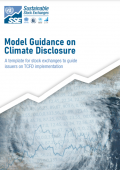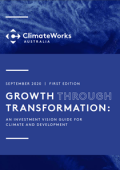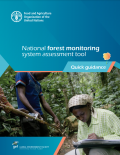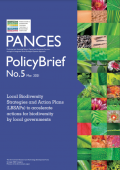This guide shows foreign investors how to embed sustainability in all stages of business operations by complying with environmental and social sustainability requirements and sustainability practices.
This sourcebook module aims to assist policymakers in developing Asian countries, particularly those involved at the urban level, move towards making the urban freight sector more sustainable.
This United Nations Environment Programme (UNEP) document presents the case for the adoption and implementation of chemicals control legislation. It is primarily intended to support decision-makers in their efforts to establish legal frameworks for preventive chemicals control, and government officials actively working to develop, adapt and implement chemicals control and the related institutional capacity.

This guidance document builds on International Accounting Standards Board’s position on how climate-related matters should be integrated into financial reporting based on current International Financial Reporting Standards.

This document offers a template and diagnostic checklist that stock exchanges can use to develop guidance on climate-related disclosure for issuers.

This guide encourages governments to think about investment in the context of the structural and social adjustments necessitated by decarbonization, assisting them to minimize the inevitable risks and capitalize on emerging opportunities. It presents a theoretical framework to complement efforts by countries to implement the long-term strategies developed under the Paris Agreement,
The Sustainability Bond Guidelines are part of a leading framework globally for the issuance of sustainable bonds. They outline best practices when issuing bonds serving social and/or environmental purposes and promote transparency and disclosure.

The national forest monitoring system (NFMS) assessment tool has been developed under the project “Building global capacity to increase transparency in the forest sector (CBIT-Forest)” implemented by Food and Agriculture Organization of the United Nations (FAO) and funded by the Capacity-Building Initiative for Transparency (CBIT) trust fund of the Global Environment Facility (GEF).

This policy brief sets out policy recommendations to encourage more municipalities to develop Local Biodiversity Strategies and Action Plans (LBSAPs) and to help improve them for better outcomes.
This guide is designed to provide steps for action for a Successful ZEZ-F. The steps in the guidance aims to support getting buy-in and approval for different zones. The guidance recognises that the orders would vary from city to city, and most will proceed in an interative and cyclical process.
